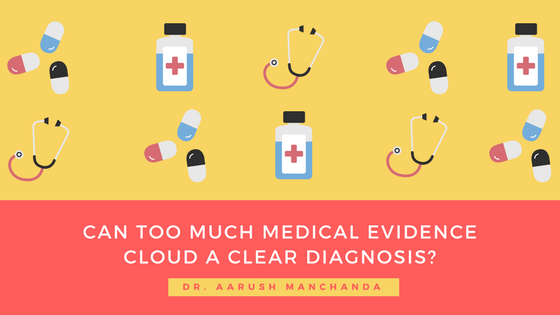Evidence-based medicine is the idea that medical decisions should be based on well-established evidence from scientifically vetted and peer-reviewed studies and research in order to make medicine more streamlined and efficient. This philosophy of medicine has helped to significantly move us forward since the days of folklore medicine and herbal home remedies, yet we are on the precipice of having too much evidence.
“There is no finesse to evidence-based medicine.”
Think about someone who doesn’t know how to cook at all. That person will rely on cookbooks developed from evidence-based education and practices. With enough study and practice, they will become capable in the kitchen. Yet evidence-based education does not make a master chef. A master chef relies on both evidence and instinct. Evidence-based medicine works to bring a medical student from a layman to feeling relatively comfortable understanding medicine, but this lacks finesse. Evidence-based medicine is important to get doctors practicing below the standard curve up to the mean. However, it does not create expert doctors who can make on-the-fly decisions in stressful circumstances with a complex or unexpected diagnosis.
"Too much evidence creates more noise.”
The other problem that we see in evidence-based medicine is that there is simply too much evidence. Humans have an optimal performance in the middle of the bell-shaped curve. If there is ever too much or too little stimulus of any kind, it creates too much static or noise, which distracts from the ability to make clear decisions.
Most people aren’t able to reliably handle the data overload that is being created now. Unfortunately, by creating so much evidence, we are overloading our minds. How do we expect the workforce to deal with the data? On any given topic there are thousands of tests, papers, studies, and experiments that are geared towards helping us make informed decisions, but instead, this often creates more confusion with contradicting results and overwhelming amounts of information. There was a time when we didn’t have enough evidence, and we didn’t perform well. Now we are on the opposite end of the spectrum where we have too much data. If the research companies are coming out with so much evidence, there needs to be a way to streamline how we consume it. In its current form of unorganized information, the doctors are struggling to shift through all of it to find what is relevant and useful. As a whole, our medical system needs to simplify rather than complicate the evidence.

